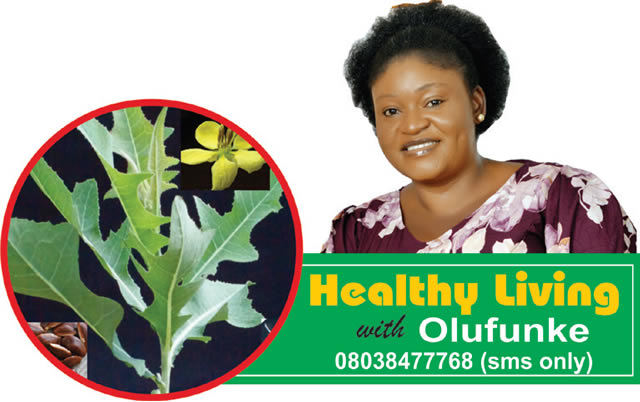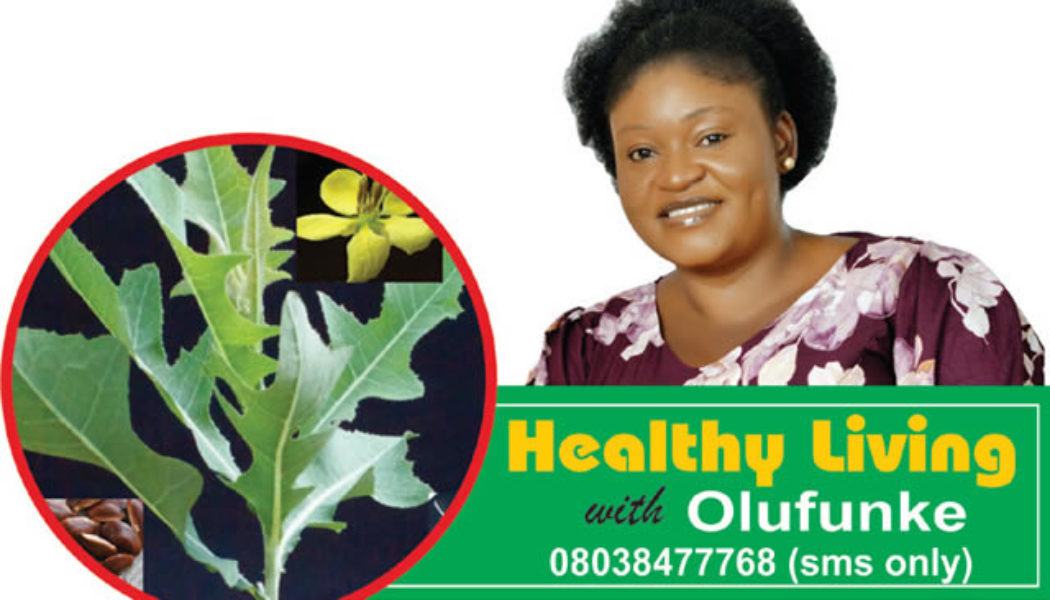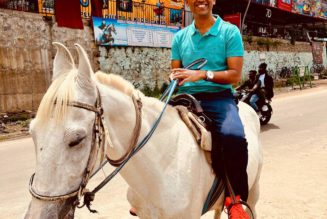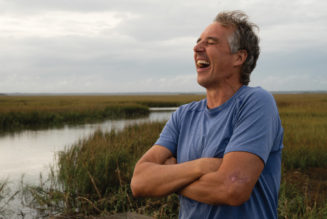
According to John F. Kennedy, “We must find time to stop and thank the people who make a difference in our lives.”
Dear esteemed readers, this column is four years old. I could never have gone this far without you all.
Every life is a story, thank you for being part of my story. When I count my blessings, I count you twice.
There are many things which I am thankful for in my life, you are at the top of my list.
Anna Taylor says, “Some people arrive and make such a beautiful impact on your life, you can barely remember what life was like without them.”
Being part of the PUNCH family has left a huge impact on my life.
My deepest thanks go to the management and everyone I have worked directly with. I am deeply grateful.
Recently, my mother sent a picture of a plant to me and I told her the botanical name immediately and she said, “You amaze me by the way you talk about botanical names of plants when in actual fact, you hated sciences while in secondary school.”
I quickly reminded her that I did not even pass biology in my West African Examination Council.
We both laughed. Well, I was in the Art Class, so I didn’t need biology.
Let us just call it a twist of fate. I did not plan that I would be talking about nature, it just happened but I enjoy it so much.
You should do whatever makes you happy.
Remember we talked about mental health already. Doing what makes you happy is one of the ways to enjoy good mental health.
Which of the topics do you still remember? Let me quickly mention some of them.
This year, I have talked about the benefits and food sources of vitamins, dietary fibre, natural blood thinners, defence mechanisms in plants, natural painkillers, how to get rid of garlic breath, natural antibiotics, intermittent fasting, and more.
By putting everything we have talked about into practice, we will be celebrating wellness rather than treating diseases.
I was invited to the 33rd Annual General Meeting and 17th Scientific Conference of the Nigerian Society of Pharmacognosy some weeks ago.
Traditional health practitioners, Ondo State Chapter were present.
While speaking, the President of the National Society of Pharmacognosy, Prof Olukemi Odukoya, kept interjecting, “eyin ni e ni ewe ati egbo” meaning ‘herbs and roots truly belong to you’.
This is very correct. All scientific research has its roots in ethnobotany.
Ethnobotany is the study of a region’s plants and their practical uses through the traditional knowledge of local culture and people.
Most of the research in the area of ethnobotany has benefited from the indigenous knowledge of aboriginal peoples all over the world.
These people will remain relevant in the development of knowledge about plants because they are the custodians of the genetic resources of plants.
While at the conference, I overheard one of the traditional healers from Ondo State tell the others that she went to ease herself and at the spot, she identified five plants!
Immediately she said that an ifa mythology came to my mind. Let me share it with you.
One day, Orunmila arranged to leave Osanyin on the farm early in the morning with the instruction to pull some weed between the rows of crops.
When Orunmila returned in the evening, he found Osanyin in the middle of the field weeping, without a single weed pulled.
Orunmila asked Osanyin why he was weeping and had not completed his task.
Osanyin replied, “You have asked me to pull all the weed but there is not one weed here.”
He pointed to one plant and said, “You would have me destroy this but this will cure ailments of the heart.”
Osanyin pointed to many other plants, identifying their medicinal uses.
Orunmila was taken by surprise that Osanyin had such deep knowledge.
We have talked about medicine in unlikely plant parts and it opened our eyes to the fact that there is no waste in nature. Almost all the plant parts we have been throwing away are medicinal.
People have been asking me for spiritual help. I guess it is because plants are discussed here.
It is true that some people have ‘received knowledge’ about the uses of plants but my mandate here is to talk about the phytochemicals in plants.
I will not deviate from this.
Recently, a video where a man talked about boiling Ocimum gratissimum (scent leaf/ efinrin) and Crassocephalum crepidioides (ebolo) and drinking the water for kidney health went viral and readers have been sending messages to me.
I would like to address it.
There is scientific research supporting the use of Ocimum gratissimum (scent leaf) for kidney health but I don’t know of any research done on Crassocephalum crepidioides (ebolo) for kidney health.
Like I said sometimes ago, we should try to encourage some flexibility in terms of acceptance of remedies even when there is no known research done on them yet, because in one of the groups I belong to on Facebook, a member posted a picture of her extremely dark eyelids due to hyperpigmentation and another member said, “mix calamine lotion, python oil and powdered milk. It works like magic and you will thank me later”, I will also say again that we should look into the synergy between scent leaf and efo ebolo.
Who knows, this might be the miracle the human race has been waiting for instead of dialysis. If we cook ebolo as a vegetable, why can’t we boil it and drink the water?
Let me state it categorically again that even if the remedy doesn’t have peer-reviewed research backing it up but it does not involve the ingestion of harmful substances, please, go ahead with their usage.
However, you have to bear in mind that all herbs must be used in moderation.
Also, don’t use any remedy that involves excessive use of alcohol.
Still, this doesn’t change the fact that some ethnobotanical claims are not safe.
At the end of the video, the man called out his phone number.
I promise that I will find time to call him and give my feedback.
I would like to talk briefly about my discussion on coffee. Some people avoid it like a plague.
The truth is that the reason you experience the side effects of caffeine in coffee is because you take it excessively.
Moderation is key.
I already talked extensively about its benefits but I would like to add more.
People with hypotension (not hypertension) usually experience fainting or ‘passing out’.
It often occurs when blood pressure is too low and the heart does not pump enough oxygen to the brain.
If you have low blood pressure, drinking caffeinated coffee may temporarily elevate your blood pressure. Some studies have shown a small and short-lasting increase in blood pressure after consuming caffeinated beverages such as coffee or tea.
Don’t forget that your body has enough sugar from all the carbohydrates you eat.
You are sweet enough. Your coffee does not need sugar or milk.








